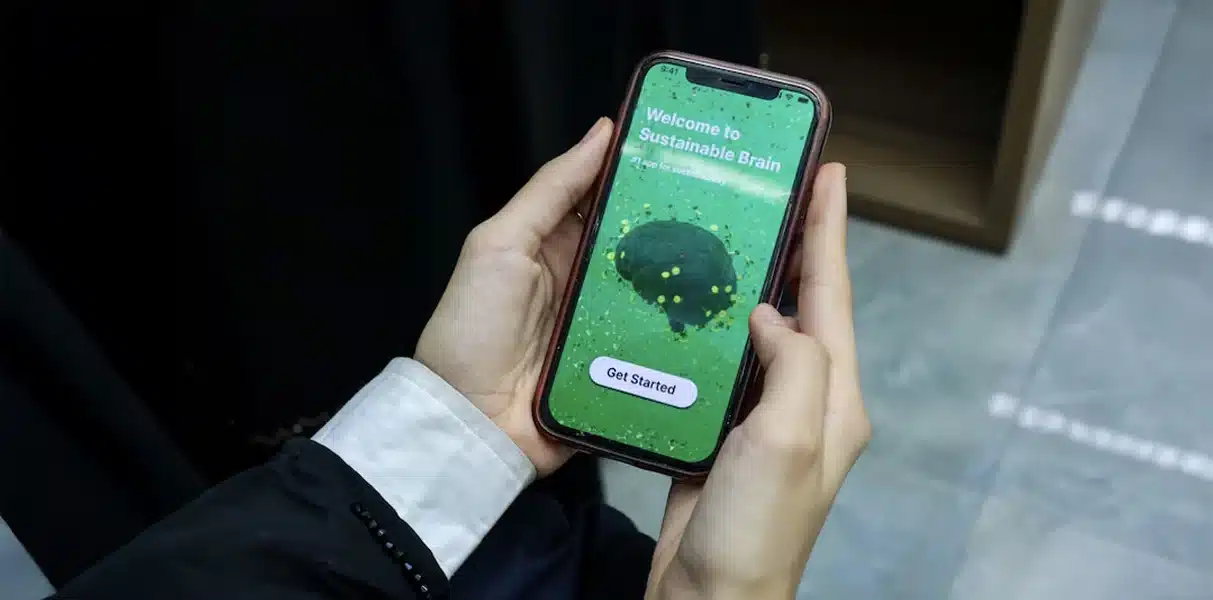Four Abu Dhabi students have been selected as the Middle East winners of The Earth Prize for their mobile phone EcoMind Academy app that integrates sustainability with maths and English lessons.
The pupils at Ghayathi Common School said that their EcoMind Academy app is being trialled in UAE schools and could ultimately be rolled out internationally.
The Earth Prize is run by The Earth Foundation, a Swiss non-profit organisation.
As regional winners, the team will receive $12,500 to develop and implement their eco-friendly education app.
Israa Ashraf Abdellatif, 15, a Grade 10 Egyptian student who leads the team, said that they began developing their app last year and have experienced “months of learning, trying and improving”. She added that the group used “every minute of free time” to develop the app, including during lunch breaks and outside of term time.
“It wasn’t perfect in the beginning. It’s a work in progress and we’re proud of how far it’s come,” she said.
The EcoMind Academy app aims to incorporate lessons in sustainability into “real-world experiences” and includes games related to sustainability and recycling. It is currently available in English and Arabic, although versions using other languages could be developed. Israa emphasized that “language shouldn’t be a barrier to learning about sustainability.”
“We designed it in a way that makes adding new languages easy in the future,” she said. “Our goal is to reach students globally, no matter where they live and what languages they speak.”
Another member of the group, Almaha Ajlan Almansoori, a 16-year-old Emirati, said that while many young people cared about the environment, “the sustainability habit isn’t easy”, but the EcoMind Academy app aimed to highlight straightforward ways to be more environmentally friendly.
“Now we’ve won the prize, a big part will go to improve the app itself, adding more features, making it more user friendly and expanding it to reach new schools, especially in early 2026,” she said.
The app is currently in a pilot phase and has been introduced to 10 schools, with the intention of rolling it out more widely.
“We’re really excited about the feedback we’ve received. In the next few years, we hope to reach more than 100 schools and expand internationally,” Almaha said.
The other members of the winning team are Fatma Hussen Sewelam, a 17-year-old Egyptian in Grade 12, and Jourey Abdullah Salama, a Syrian, also 17, and in Grade 12. The students all received support from their team supervisor, Hanan Gamal Moustafa, and the school’s principal, Moza Saeed Mubarak Almansoori.
Geneva-based non-profit organisation The Earth Foundation set up The Earth Prize to “empower and educate young people to tackle environmental challenges”.
It is open to young people aged 13 to 19 and, since being founded in 2021, more than 15,000 young people in 160 countries have become involved, with $500,000 awarded to winning teams.
The Earth Foundation highlights research indicating a high level of concern about environmental issues among young people, with 59 per cent very or extremely worried about climate change.
Israa said that sustainability was important “because we have only one planet and it’s facing serious challenges”, including pollution, climate change, and waste.
“If we don’t act now, the consequences will affect not just us, but future generations. It’s about everyone making small steps that add up,” she said.
One winner is being chosen from each of seven regions around the world, with a winning team announced each day this week. From Sunday onwards, the public will be able to vote for their choice for the global prize online, with the winner to be announced on Earth Day on April 22.
Peter McGarry, the founder of The Earth Foundation, described the 2025 winners as being “a true testament to the boundless creativity and passion of today’s youth”.
“Many of the teams recognised by The Earth Prize have drawn inspiration from local challenges, such as water shortages in Turkey, flooding in North Carolina, and wildfires in California, to name just a few,” he said. “In each case, young people from around the world, directly experiencing the consequences of environmental issues, have risen to the challenge by developing innovative solutions.”
Among the other regional winners already announced are two students from Slovakia and the Czech Republic selected for the European prize for their water purification technology. Three young people from New York who have developed an eco-friendly shock-absorbing cardboard packaging are the North America winners.
With the $12,500 prize, the students plan to enhance the EcoMind Academy app by adding new interactive features, expanding its language support, and increasing its accessibility in schools across the UAE and beyond.
They aim to scale the app to reach over 100 schools by 2026 and target an international rollout — ensuring students worldwide can benefit from sustainability education tailored to local and global challenges.
The journey of these Abu Dhabi students stands as an inspiring model of youth-led innovation and their vision for an eco-friendly future.

